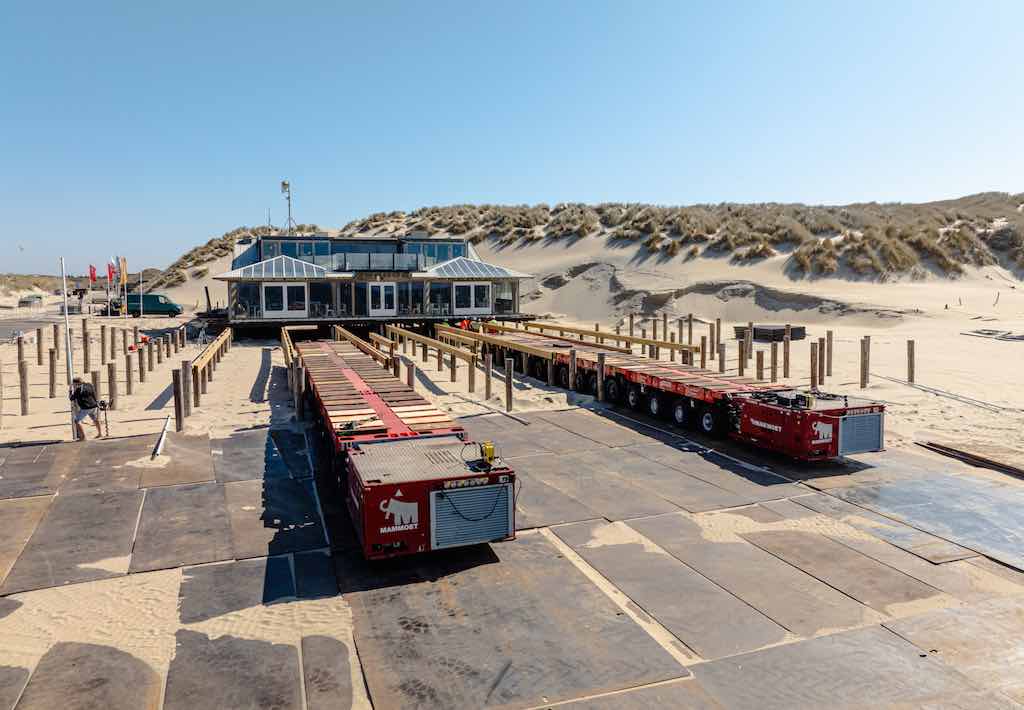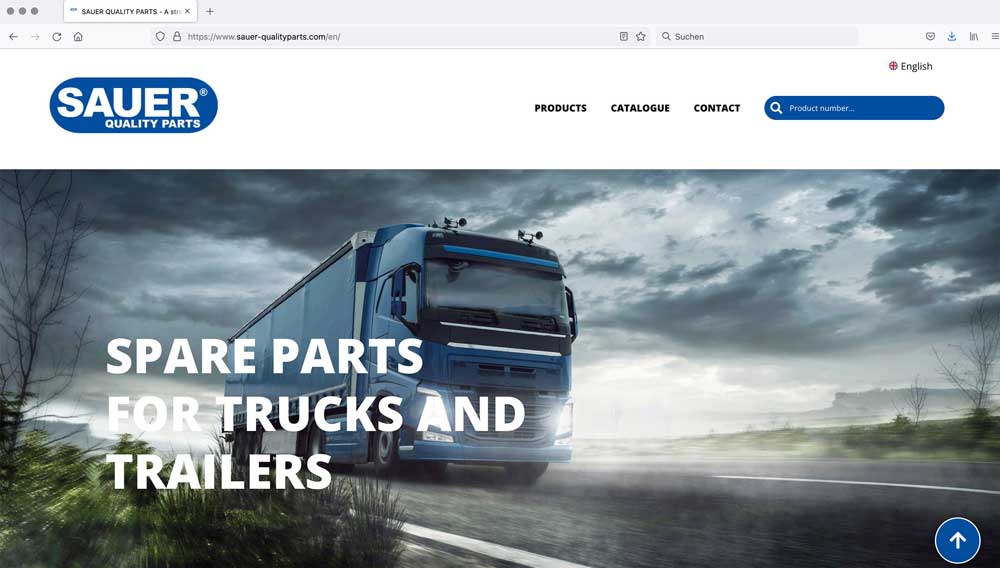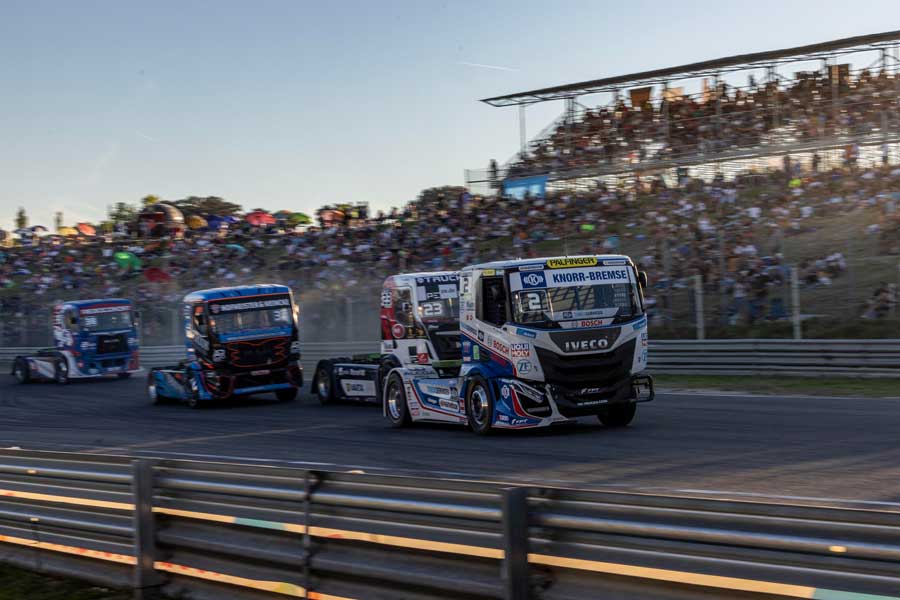Hyundai demonstrated its leadership with innovative mobility solutions at the SHIFT Mobility Convention as part of the IFA 2020. Through various activities, Hyundai highlighted its accomplishments in the field of fuel cell mobility, shared insights on the role of start-ups and OEMs in driving forward progress, and explained its transformation from an automotive manufacturer to a smart mobility service provider.
The SHIFT Mobility Convention at IFA 2020 took place as a hybrid digital-live format this year. In addition to a physical exhibition and live activities such as the IFA Global Press Conference, a comprehensive digital extension ensured remote participation.

“We’re pleased with the results of our activities at the SHIFT Mobility Convention in conjunction with the IFA this year,” says Andreas Christoph-Hofmann, Vice President Marketing and Product at Hyundai Motor Europe. “Hyundai has taken the chance to further digitalise its communication approach to reach a broader and interactive audience. We will continue on our way by using new platforms of communication.”
“SHIFT Mobility Convention at IFA this year provided the ideal platform to present and demonstrate our leadership in technological innovation,” says Michael Cole, President and CEO of Hyundai Motor Europe. “Our philosophy as a company is to look at challenges not so much as a disruption to our existing business, but more as a catalyst to accelerate the new business opportunities. We see these as chances to further progress the customer-centric mobility that leads the industry into a new future.”

Panel discussion: looking to hydrogen as the fuel of the future
Hyundai’s activities at SHIFT/IFA began on Thursday 3 September, with a virtual panel discussion entitled “Fuelling the Future: Paving the Way to a Hydrogen Society.” In it, a group of Hyundai representatives, together with external experts in the field of hydrogen, discussed the potential of fuel cell technology as a zero-emission mobility solution, including how fuel cell technology works, the role sustainable supply chains for producing hydrogen will play in lowering carbon emissions, and the importance of developing solutions which are both ecologically and economically sustainable. The panellists included:
- Albert Biermann, President and Head of R&D Division, Hyundai Motor Group
- Dr. – ing. Sae Hoon Kim, Senior Vice President & Head of Fuel Cell Center at Hyundai Motor Group
- Bertrand Piccard, Swiss psychiatrist and balloonist, Hyundai Brand Ambassador
- Mark Freymüller, CEO at Hyundai Hydrogen Mobility AG
- Jorgo Chatzimarkakis, Secretary General of Hydrogen Europe and former Member of the European Parliament
- Stefan Linder, Head of Innovation & Technology, Alpiq
- Dr. Marcus Guzmann, Chief Sales Officer at Hydrogenious LOHC Technologies
Nicole Scott, journalist and founder of the tech magazine Mobile Geeks, moderated the discussion.

The discussion was opened by Albert Biermann, President and Head of R&D Division at Hyundai Motor Group. President Biermann presented Hyundai’s vision of how various types of zero-emissions mobility, from battery-electric vehicles to fuel cell solutions, will complement each other rather than compete. This can be accomplished by targeting different sectors: BEVs are an optimal solution for passenger transport and commuting, and FCEVs, with their short refuelling times and long ranges, have significant potential in freight transportation and commercial shipping.
Next followed a discussion by Dr. – ing. Sae Hoon Kim, Senior Vice President & Head of Fuel Cell Center at Hyundai Motor Group and Bertrand Piccard, Swiss pioneer, environmental supporter and Hyundai Brand Ambassador. Dr Kim outlined Hyundai’s Fuel Cell Vision 2030 and provided an overview of how fuel cell technology works. Meanwhile, Piccard emphasised the importance of bridging the gap between economy and ecology. As the co-founder and initiator of the Solar Impulse Foundation, he drives innovation by developing economically-viable business solutions that can solve environmental problems.

Next followed an open discussion with various experts in fuel cell technology and the hydrogen supply chain, including a former Member of the European Parliament.
CEO of Hyundai Hydrogen Mobility AG Mark Freymüller elaborated on a unique business case in Switzerland to build up a hydrogen refuelling infrastructure and simultaneously put fuel cell vehicles on the road using heavy-duty fuel cell trucks.
Meanwhile, Stefan Linder, Head of Innovation & Technology of Alpiq, talked about the importance of using renewable hydrogen for a truly zero-emissions supply chain and hydrogen’s potential as a storage medium for renewable energy
Dr. Marcus Guzmann, Chief Sales Officer at Hydrogenious LOHC Technologies, shared his perspective on the challenges of transporting and storing hydrogen and how companies such as Hydrogenious are working to find solutions using Liquid Organic Hydrogen Carriers.
Finally, Jorgo Chatzimarkakis, Secretary General of Hydrogen Europe shared the EU’s goals and visions for promoting hydrogen mobility in Europe, particularly with regards to developing a clean hydrogen refuelling infrastructure and economically-viable use cases – including using fuel cell trucks for commercial shipping.
Overall, the panellists painted a holistic view of the challenges and opportunities related to hydrogen fuel cell mobility, a format which allowed Hyundai to highlight its own role in driving forward the more widespread adoption of this technology.

Hyundai at the IFA Global Press Conference: smart mobility solutions for today and tomorrow
On 4 September, Hyundai joined the IFA Global Press Conference, with President and CEO of Hyundai Motor Europe Michael Cole sharing insights on Hyundai’s commitment to driving change and its strategy for the future in the form of an interview session with moderator Nicole Scott. He talked about Hyundai’s transformation from a car manufacturer to a smart mobility solutions provider, including the company’s progress in not just developing new technologies but also infrastructure and service solutions.
The conversation later moved on to Hyundai’s electrification strategy, with President Cole citing Hyundai’s investments and production targets in eco-mobility. Hyundai plans to invest over EUR 40 billion to future mobility in the next five years, EUR 6.7 billion in fuel cell technology by 2030.
President Cole placed a particular emphasis on hydrogen mobility: “We want to be a leader in fuel cell technology, so we’re expediting our development to support a hydrogen society. Our plan by 2030 is to produce 700,000 fuel cell systems annually.”

He also talked about the history of the name IONIQ, from the original model IONIQ, the first car available with three alternative powertrains, to Project IONIQ, which lead to such innovations as wearable exoskeletons and the Hyundai Scooter, and now, the new IONIQ line-up brand, which will play a vital role in accelerating Hyundai’s plan to lead the global EV market.
President Cole also discussed Hyundai’s strategy in Europe and what customers can expect to see from Hyundai in the future: “Our mission is to redefine the in-car experience. We want to focus on the idea of creating a connected, personalised environment inside the car.”
Head of CRADLE Berlin shares Hyundai’s innovation strategy
Finally, Head of Hyundai CRADLE Berlin Edvin Eriksen shared insights on Hyundai’s innovation strategy, including and how start-ups and OEMs can work together with urban and mobility planners to promote innovation. The session, entitled “Co-Innovation and Integration – New Synergies and Global Perspectives on the Mobility Market,” focused on how interdisciplinary cooperation is necessary to expand new solutions.

CRADLE is Hyundai’s start-up incubator. By partnering with promising start-ups, incubators and investors through CRADLE, Hyundai is ensuring its position at the forefront of future mobility technology, while at the same time encouraging innovators to take risks and pursue the solutions of tomorrow.
Among other topics, Eriksen talked about how all organisations have a role to play in developing new mobility solutions: start-ups, by innovating new ideas; OEMs, by scaling up production and driving down costs; and urban planners and infrastructure providers, who can support the wider adoption of eco-mobility solutions by ensuring adequate charging and fuelling infrastructure to support customers’ needs.










